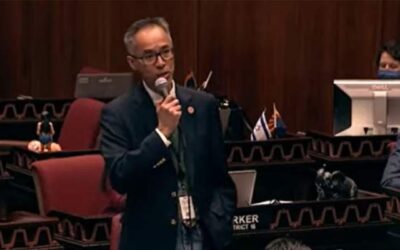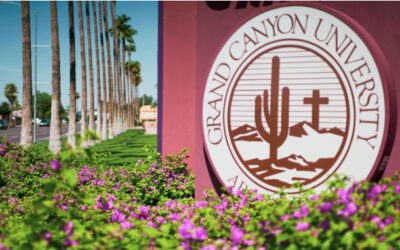By B. Hamilton |
The Arizona Board of Regents has agreed “with all the findings,” the Auditor General reached in a recent performance audit related to Arizona’s state universities’ failure to consistently follow its guidelines.
The Arizona Board of Regents also agreed that it failed to provide adequate oversight of the universities.
On Thursday, June 3 the Arizona Auditor General released the second in a series of three audit reports on the Arizona Board of Regents (ABOR) as part of the organization’s mandatory sunset review.
The audit looked at whether ABOR’s guidelines governing university-affiliated organizations, such as university foundations and alumni associations, were consistent with recommended practices and the extent to which the universities complied with these guidelines.
The bottom line, according to the Auditor General: “The universities have not consistently followed ABOR’s guidelines governing university relationships with affiliated organizations, limiting full transparency and accountability for some university resources provided to and the benefits received from these organizations, nor did ABOR regularly receive information on affiliated organization activities.”
The Auditor General’s report includes the following findings:
• ABOR defines affiliated organizations as legally separate nonprofit corporations that hold economic resources and carry out activities primarily in support of the universities; and the State’s 3 universities have established relationships with 19 affiliated organizations, including fundraising foundations, real estate organizations, and alumni associations.
• In fiscal year 2019, the universities’ affiliated organizations made $253.5 million in payments to benefit the universities for various purposes, including donations and scholarships, and the universities paid $102.8 million to their affiliated organizations for various purposes, including service fees, real estate debt service, and expense reimbursements.
• Universities lacked current agreements and complete documentation and disclosure of some transactions with some of their affiliated organizations, limiting their ability to demonstrate the public purpose of university resources provided to these organizations and hold them accountable for providing expected benefits and agreed-upon services.
• ABOR’s affiliated organization guidelines lack some requirements to ensure full transparency and accountability and ABOR has not explicitly overseen universities’ compliance with its guidelines.
• ABOR has not required universities to report information it needs to identify, monitor, and mitigate risks associated with affiliated organization activities such as mismanagement, investment losses, and fraud.
The issues of ABOR have been ongoing. In July of 2019, the Arizona Attorney General filed a lawsuit against ABOR and Arizona State University (ASU) alleging violations of Arizona’s constitutional gift clause, and in October of 2019, the Arizona Auditor General released an audit that describes similar issues.
The Arizona Attorney General alleged that ABOR and ASU violated Arizona’s constitutional gift clause when they gifted Omni Hotel almost 37 million dollars upfront in discounted property valuations, paying for a parking garage, and paying an additional $19.5 million to build a conference center where ASU was only contracted to use 7 days per year.
The Arizona Attorney General’s records also indicated that ASU valued the property, located at the corner of Mill and University, at $85 per square foot, yet across the street, the Hilton Canopy paid $212 per square feet.
The courts, though, rejected the Attorney Generals’ arguments on the matter.
In the most recent audit, the Arizona Auditor General states that still “Universities have not consistently documented and disclosed some affiliated organization transactions, limiting full transparency and accountability, and ABOR has not explicitly overseen university compliance with its guidelines.”
This is after a response from ABOR in October of 2019, stating that due to the policies being revised in December 2018, they had not had the chance to implement the new policies effectively. Now, with the new audit, ABOR has agreed to implement the recommendations by the Auditor General.
According to the 2019 audit, the Campus Research Corporation (CRC) spent an estimated $38.1 million without written approval due to the UA not being able to demonstrate written approval from the UA president for the CRC’s budget and, instead, relied on the CRC’s Board of Directors to approve its own budget. The CRC also, contrary to the master lease agreements, inappropriately advanced $3.9 million generated at one property to another property, including approximately $1 million that the CRC advanced to the other property in fiscal years 2017 and 2018 instead of paying rent to the UA.
In 2019, ABOR had entered into 3 master lease agreements with the CRC, a nonprofit, nongovernmental organization affiliated with UA to operate, manage, and sublease ABOR properties.
The UA also failed to retain records of its public activities related to overseeing ABOR’s master lease agreements with CRC, contrary to public records laws.
ABOR continues to lack comprehensive property information to independently oversee and manage the use of its properties. As of May 2019, ABOR did not maintain a complete list of all property that it owns, although its policy requires the universities to maintain some information on ABOR properties they use. A review of the Arizona county assessors’ and treasurers’ records identified 1,127 parcels in Arizona potentially owned by ABOR and compared this information to property listings the universities provided.
Findings indicate that NAU’s listing did not include a 23-acre parcel listed on the county assessor records as ABOR-owned and included 8 acres of property for which it could not demonstrate ABOR’s ownership; UA’s listing included 255 acres of property ABOR never owned and nearly 83 acres that ABOR had sold; and ASU’s listing was limited to its commercial properties, which is only a portion of ABOR properties ASU uses.
The Auditor General found that “Although the universities have developed processes for mitigating the risk of inaccurate property ownership information, ABOR’s lack of comprehensive property information limits its ability to oversee and manage the use of its properties.”








